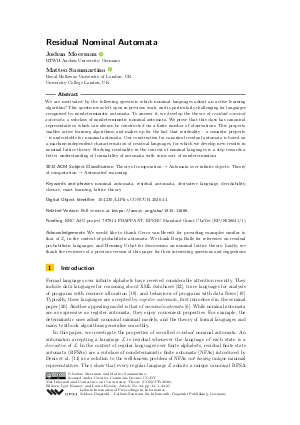LIPIcs.CONCUR.2020.44.pdf
- Filesize: 0.55 MB
- 21 pages

 Creative Commons Attribution 3.0 Unported license
Creative Commons Attribution 3.0 Unported license





















Feedback for Dagstuhl Publishing